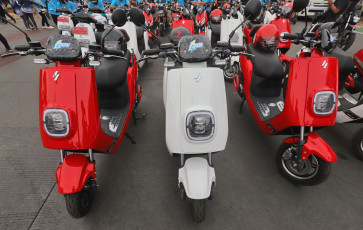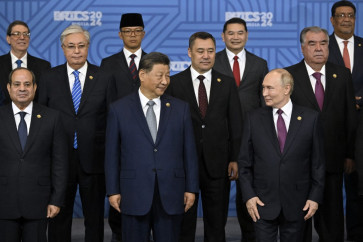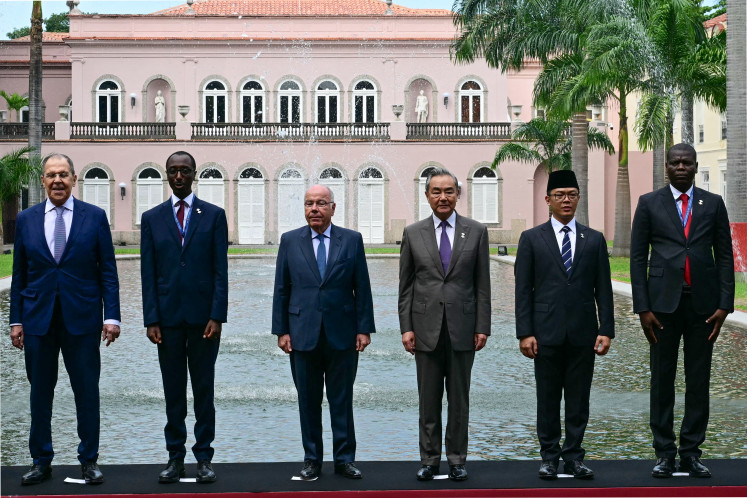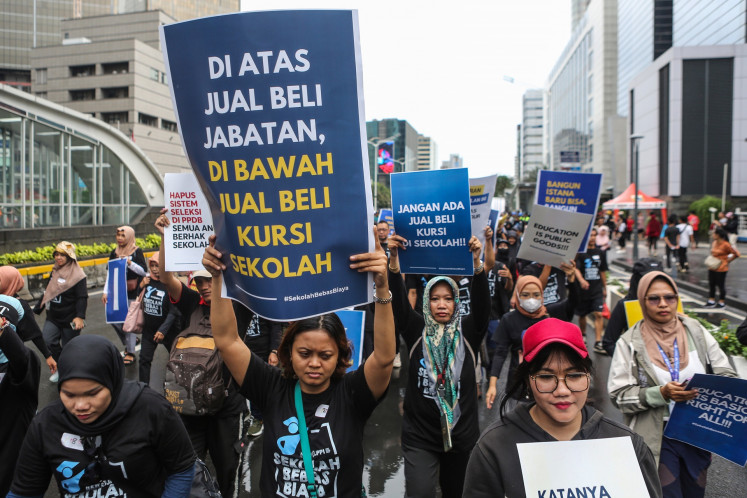The Mumbai attacks: A new hypothesis
The fire ignited by the terrorist attacks on Mumbai on Nov
Change text size
Gift Premium Articles
to Anyone

The fire ignited by the terrorist attacks on Mumbai on Nov. 26 last year has not been put out as yet. The FBI has been helping India conduct the investigation to prevent the conflict from turning into a regional inferno. Pakistan has been carrying out its investigation based on the dossier provided by India.
It also responded to the United Nations resolution for prompt action against an Islamic charity organization allegedly involved in the Mumbai attacks.
Just a few days ago, Pakistan’s Interior Ministry chief Rehman Malik came up with findings on the Mumbai attacks that part of the terror plan was indeed hatched within its territory. At a recent press conference on Feb. 12, Rehman Malik announced that Pakistan was holding the ringleader and five other suspects involved in the appalling tragedy in custody. Two others, however, remain at large. The investigation is ongoing, and much more still needs to be done.
To the surprise of many, however, Narendra Modi, India’s Gujarat chief minister, and L.K. Advani, former president of the BJP, one of India’s major political parties, recently hinted that the Mumbai attacks could not have been carried out without internal help. Modi reportedly said, “If we single out that one incident [the Mumbai attacks] and ask any person in this country…with basic information and knowledge, he will say that such a big terror attack on India cannot take place without help from the nation itself.”
In July 2008, within a time span of 70 minutes, a series of 21 bomb blasts hit Ahmedabad, the cultural and commercial heart of Gujarat State located in western India, killing 56 people and injuring more than 200.
Earlier in 2002, sectarian violence erupted between Hindus and Muslims for the first time in Gujarat, killing hundreds and displacing more than 150,000 people, of which the majority were Muslims, who have since been living in refugee camps in dire humanitarian conditions.
The Indian Mujahideen, an Islamic terrorist organization active within the country, claimed responsibility for the 2008 attacks, and the Indian government rapidly linked them to militant groups operating in Indian-held Kashmir, where a dozen rebel groups have been fighting for an independent Kashmir against Indian armed forces since the separatist insurgency erupted in 1989.
Modi and Advani’s statements, however, added an altogether new dimension to the Mumbai issue, which interestingly may lead to Kashmir and which may ultimately also lead to renewed talks between Pakistan and India on the disputed territory.
The Kashmir dispute dates back to the partition of British India into two independent states in August 1947 and which has remained unsolved after more than six decades.
US President Barack Obama pledged to intervene and seek to solve the Kashmir dispute.
During the latest visit to India by British Foreign Secretary David Miliband, he suggested that resolving the Kashmir dispute would make India less vulnerable to attacks, and that Richard Holbrooke, the US special representative for Afghanistan and Pakistan, would also work for a resolution to the Kashmir issue.
A solution to the Kashmir dispute will enhance the regional stability of the South Asian subcontinent, where both India and Pakistan are nuclear powers. It will also boost India’s economy and open many more doors for the world’s fastest growing democracy to become a global political and economic player.
Nonetheless, the time has also come for Pakistan to seriously focus on the growing threat of militancy within its borders. It has a dual responsibility when it comes to eradicating terrorism. It not only has to wipe out the menace from within its territory, but to succeed, Pakistan will also have to stop supporting militant groups beyond its borders.
The international community, however, needs to realize that one country alone cannot overpower the giant of militancy which it has been facing since the end of the Afghan war in 1989. It needs support from the region and the whole world to seriously address the issue.
Fortunately, President Obama has blown some rejuvenating air into US foreign policy. Whether it is the war in Iraq and Afghanistan, the Israel-Palestine issue, or the Kashmir dispute, he definitely has the right intentions within his capacity to do something good for this world.
The writer is a freelance writer based in Jakarta.









